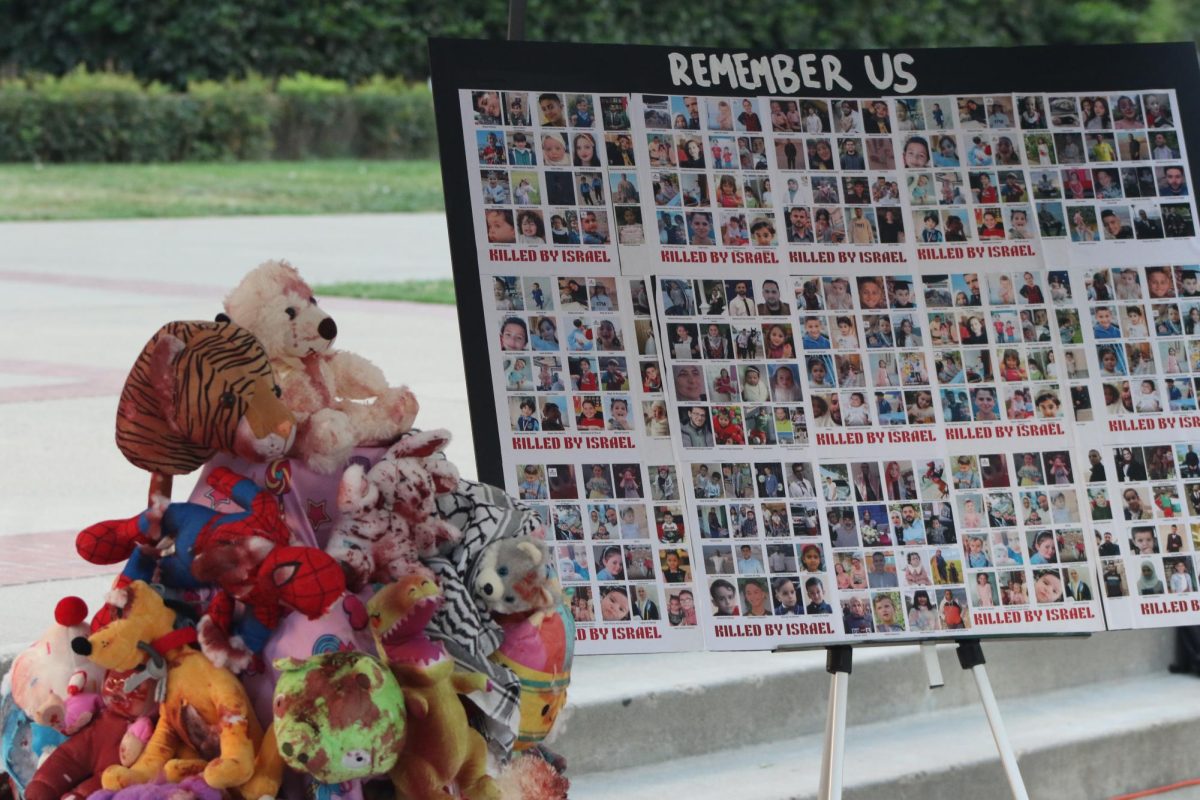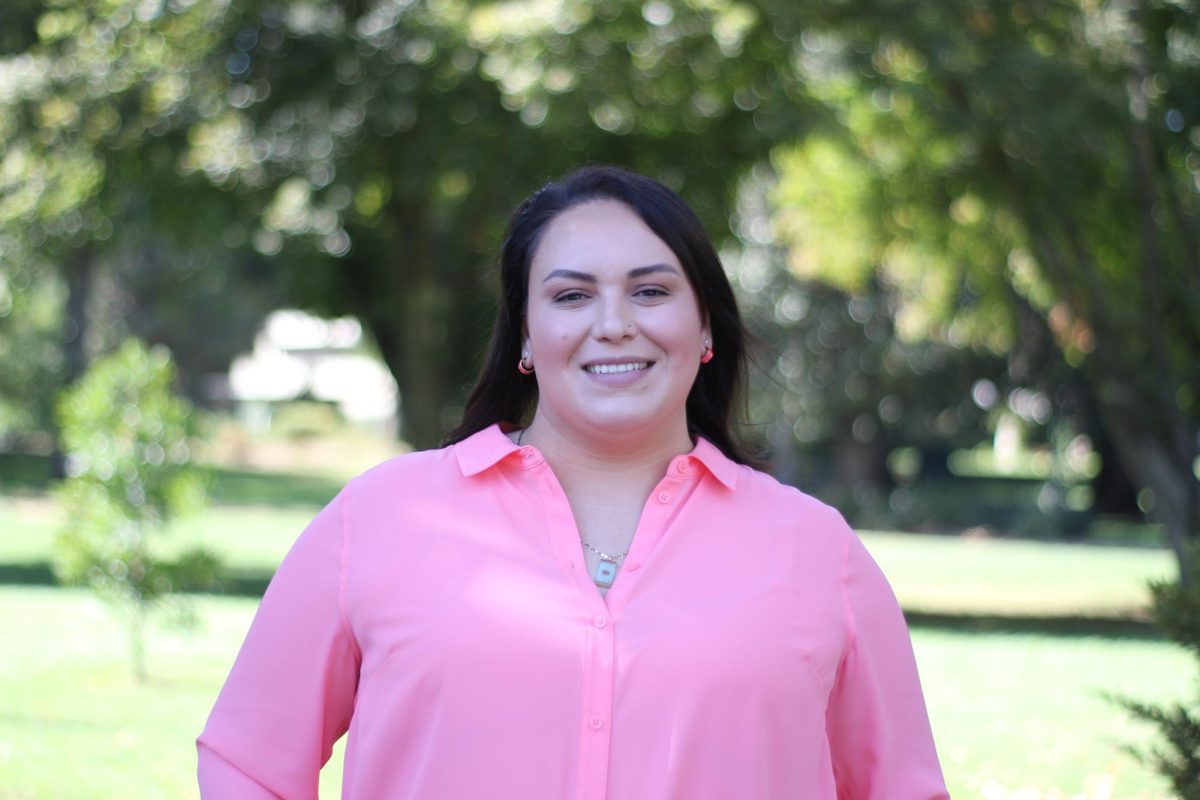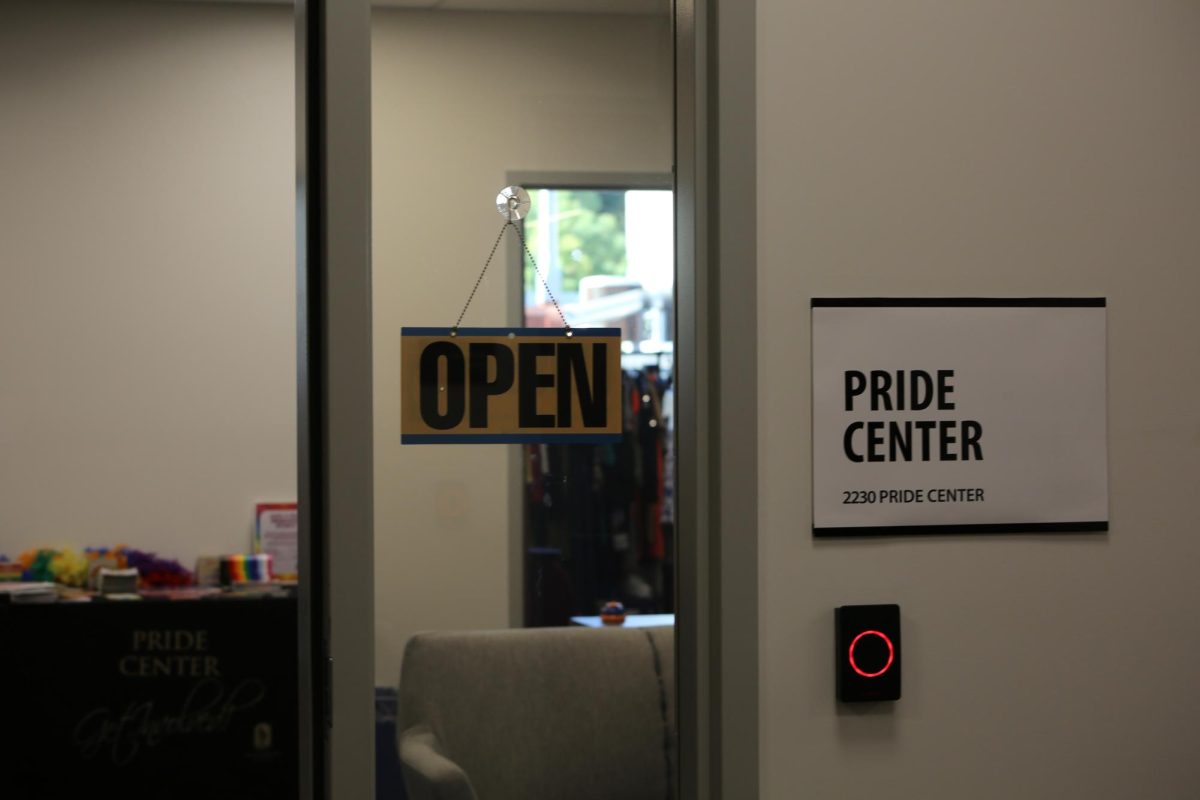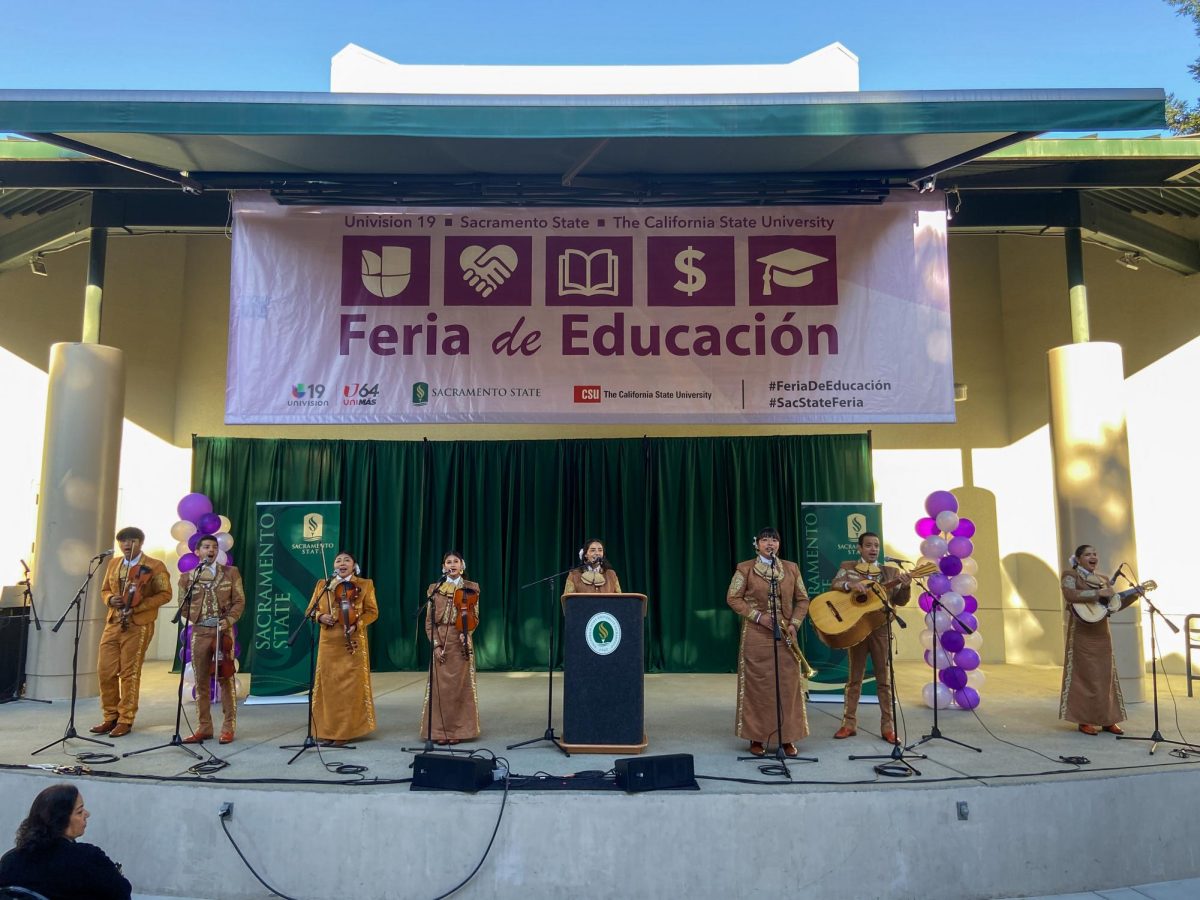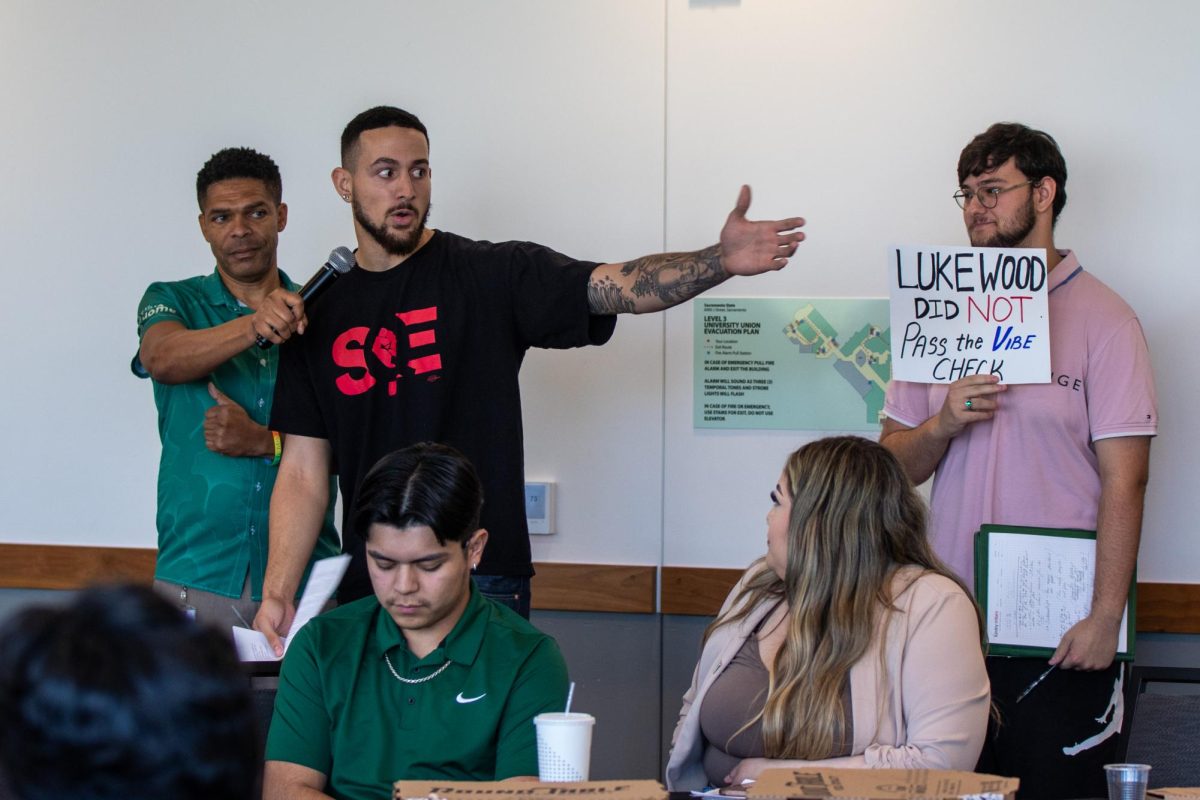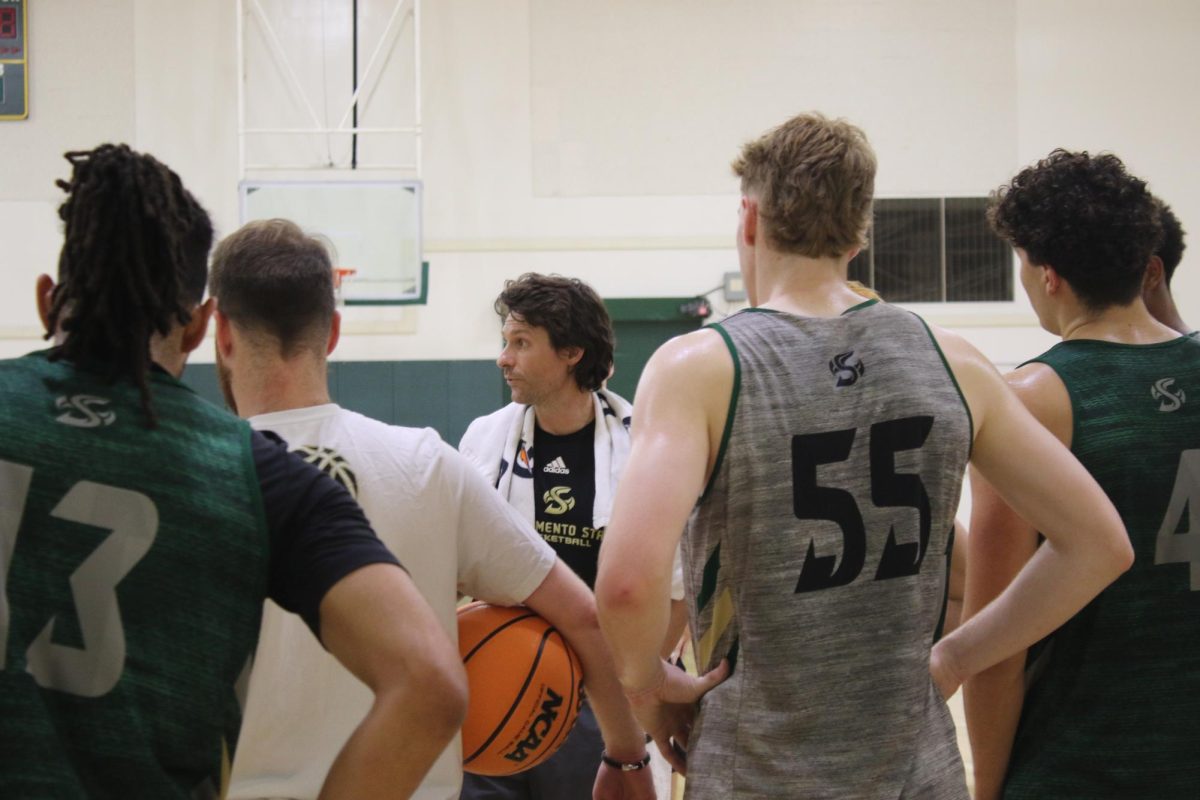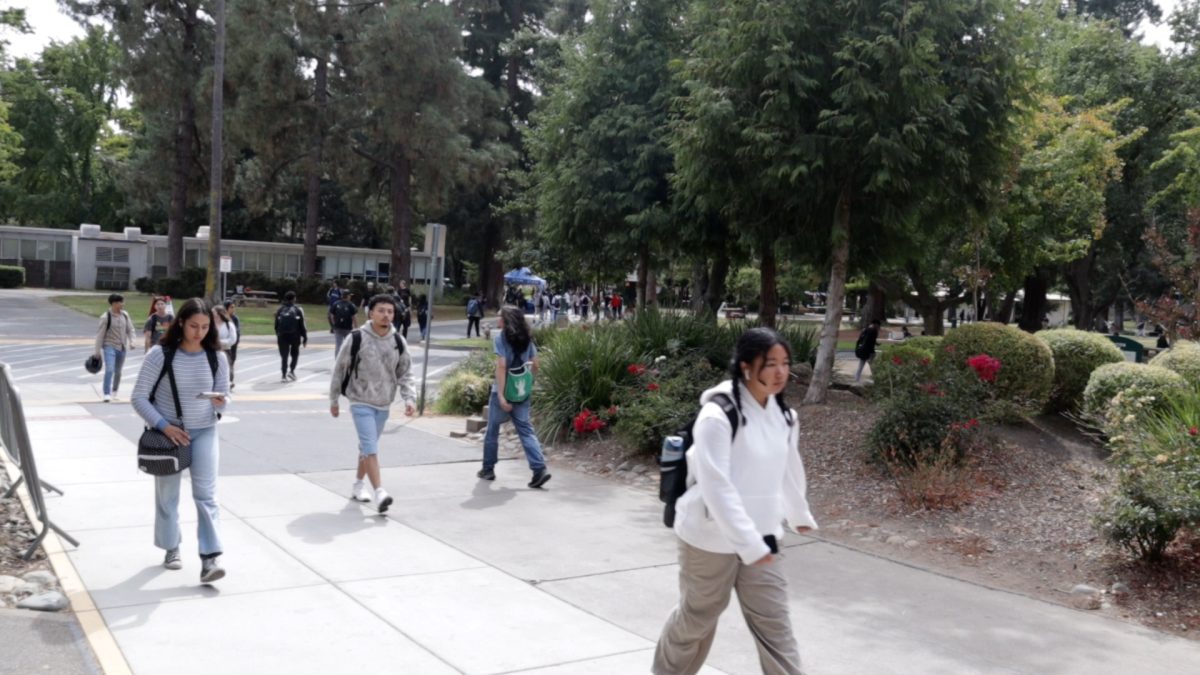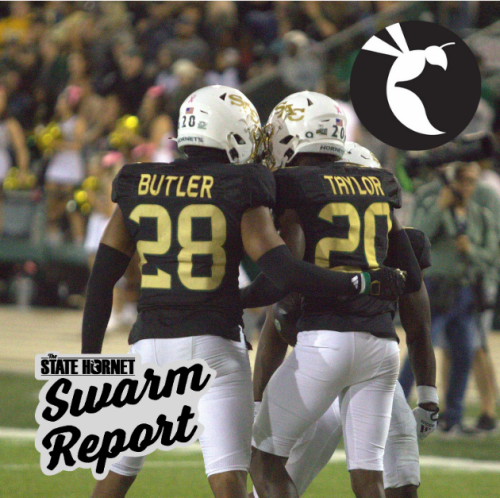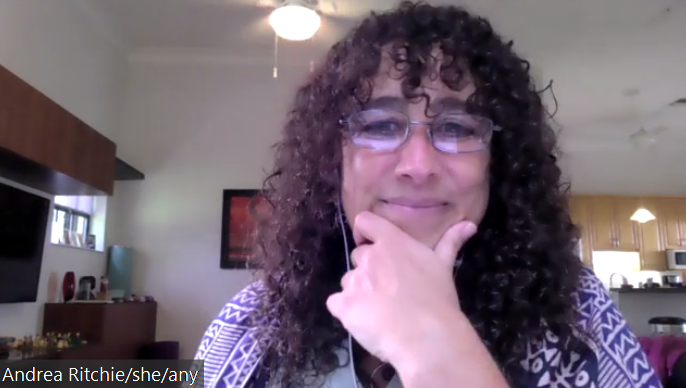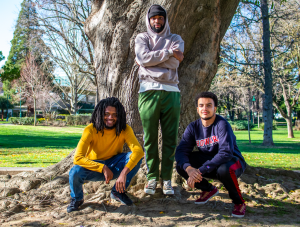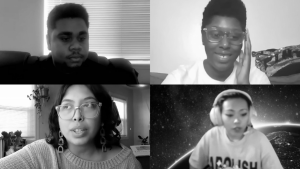Attorney and activist Andrea Ritchie talks police violence against women of color
Andrea Ritchie discusses police violence, mass incarceration, and criminalization through the perspective of Black women and women of color in a Sac State virtual event Monday, March 8, 2021. The event was held in celebration of Women’s History Month and the 50th anniversary of the women’s studies department at Sacramento State. Screenshot taken via Zoom.
March 8, 2021
Police misconduct attorney Andrea Ritchie spoke about the increasing rate of female incarceration and police violence towards women of color as part of a virtual celebration of the Sacramento State women’s studies department’s 50th anniversary on Monday.
Her work as a police misconduct attorney, political activist and author has been centered around dismantling the unjust treatment of women, people of color and the LGBTQ community by law enforcement for the last 20 years.
Ritchie said her experiences as a Black, lesbian immigrant influence her work as an activist.
“I say those things when I speak because they’re not necessarily immediately apparent from looking at me,” Ritchie said. “But they definitely shaped the way I approached this work and understand it.”
As a survivor of both police and interpersonal violence, Ritchie said that those experiences have shaped her dedication to her work for the past 25 years.
Ritchie said she wrote her book “Invisible No More: Police Violence Against Black Women and Women of Color” because of many unnoticed cases of injustices towards women of color from police.
She cited the death of Breonna Taylor, the 26-year-old Black woman who was shot and killed in her own home during a no-knock raid by Louisville police officers on March 13, 2020, as a notable exception to this, as Taylor’s death sparked protests and discussion of police brutality worldwide. This is the week of the one-year anniversary of her death.
“Following Breonna’s killing…Black women’s experiences of police violence are, in this moment, more visible than they ever have been,” Ritchie said.
Ritchie’s work as an activist and police misconduct attorney actively seeks to remedy the lack of a discussion surrounding Black women and women of color’s experiences of police violence..
“As we go forward, we hope that we will no longer be in a situation where Black women’s experiences and trans people’s experiences are less visible,” Ritchie said.
Ritchie also discussed the statistics of Black men and men of color who are incarcerated.
“Many of us have heard from watching ‘13th’ or reading ‘The New Jim Crow’ that one in three Black men will be incarcerated in their lifetime,” Ritchie said. “That statistic has mobilized a movement to end mass incarceration.”
Ritchie said that while men are normally the main population discussed when talking about incarceration, it is non-white women and transgender people who are facing an increasing likelihood of ending up in jail.
“When we think of mass incarceration, something that’s also often invisible is the reality that women have been the fastest growing prison and jail populations for the past four or five decades,” Ritchie said.
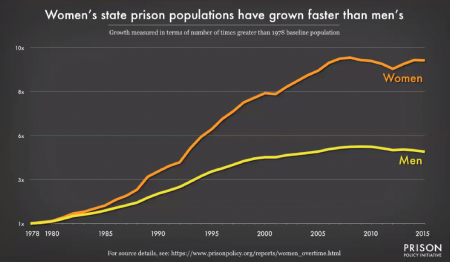
Ritchie said she advocates for the defunding of police and limiting interaction with law enforcement when other, more suitable options exist.
“The best way to hold a police department accountable is to defund them,” Ritchie said.



